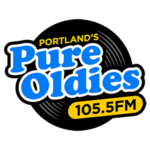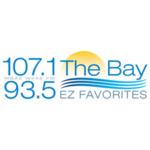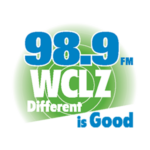Both times in my career that I responded to a help wanted ad, I wasn’t actually looking for a job. I was just listening to the radio. Here’s what happened.
I went to music school, graduating with a BA in Musical Composition in 1991. This eminently useful degree allowed me to quickly scoop up a part time job at a supermarket bakery back in the town where I grew up. One morning as I was raising dough, baking muffins, and placing loaves of garlic bread into foil bags, the station to which we were listening in the back went to a commercial break. What I heard next was true music to my ears: “Are you a creative person? Comfortable behind a microphone? WLKZ is now hiring on-air personalities and production staff!” I applied. I got a part-time DJ shift that quickly became a full time sales and production position. The muffins were in the rear view mirror.
In 1994, with two years of selling now under my belt, the radio once again reached out to me. The job being offered was at a larger station in the Portland, Maine market. The sales manager reading the copy sounded cool. The job sounded exciting. I drove to Portland the next day to apply in person, and two weeks later, they hired me. I’ve been in the market ever since.
Nearly everyone is looking for help. For companies looking for skilled and professional employees, the “unemployed” pool really doesn’t exist anymore. Employed candidates must be enticed, with the promise of a better future somewhere else. To do this, employers need to effectively tell their story.
Radio tells stories. Having been personally ambushed and bagged by not one but two radio recruitment campaigns in my life, I can attest to the medium’s effectiveness. In both instances, 1.) I was qualified for the job being offered, 2.) I was not looking for that job, and 3.) I was already employed.
That second time I was recruited, I was employed full time, had benefits, liked my co-workers and enjoyed the job. It was a good little company. My reason for making the jump was that I saw an opportunity to grow in a bigger market. I would be in the minority today, however– a recent survey showed that 53% of employees are dissatisfied with their current work environment. Over half. These people are ripe for the recruitment picking and particularly receptive to a better opportunity somewhere else. They just need to hear about it.
Consider all of this:
- Radio reaches more people monthly than any other medium. According to Pew Research, 82% of people age 18 and up listened to the radio at some point this week.
- Radio reaches people while they’re on the move—driving, working on a project in the garage, shopping, working out at the gym or eating at a restaurant.
- Radio reaches both active job seekers as well as candidates who don’t currently consider themselves to be job seekers. This second group often contains some of the most qualified people of all.
- Radio reaches people who are not candidates… but who may know someone that is.
- Radio allows you an opportunity to both recruit and brand your business to the audience.
- Radio enhances an existing digital campaign. Research has shown an increase in online views, clicks, and conversions when the candidate has also heard about a company on the radio.
At the end of 2023, the unemployment rate in Maine stood at 3.0%. In other words, 97% of Mainers don’t need a job. They’ve got one already. If someone better understood who your company was and what you have to offer, though… they might discover they’re closer to jumping into the next adventure than they thought.
Tell them your story and watch what happens.








